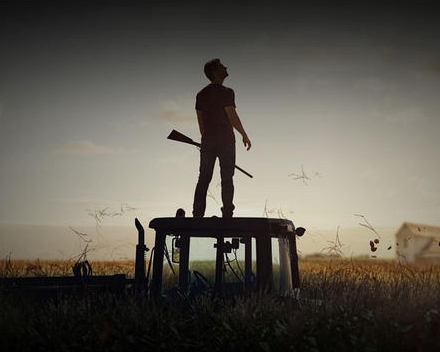Childhood’s End
Children’s time
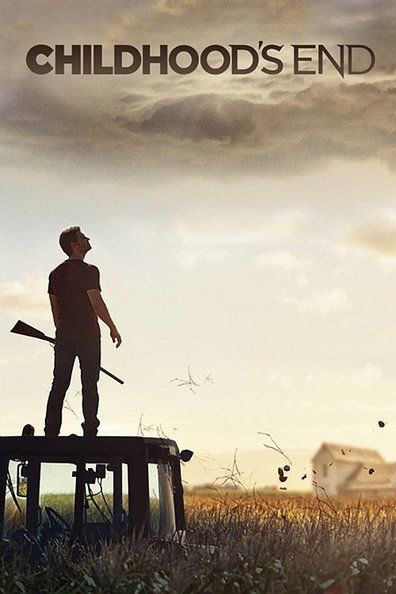
When it is said that a movie is based on the novel of a certain author, its fans become automatically interested, either by being able to visualize something that only existed in their imagination as a reader, or to be able to claim “that it has nothing to do with the book”. So, when I found out that one of Arthur C. Clarke’s most complex books had inspired a miniseries, I was very curious. The book in question is “Childhood’s End”, written in 1953, whose eponymous series was launched in 2015 by the SyFy channel.
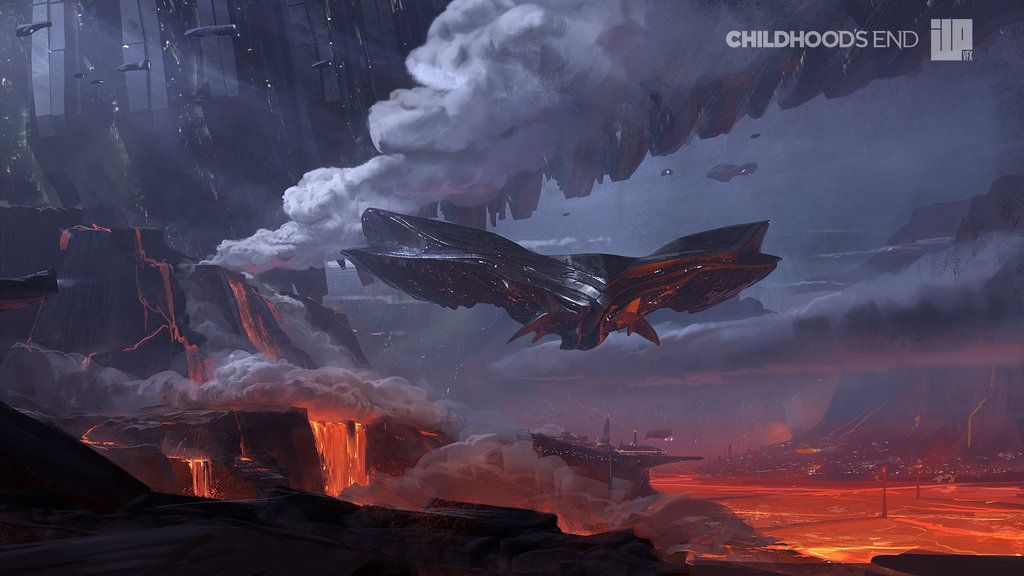
I have always considered Clarke the best science fiction writer of all time, and although I have read many of his books since I was a boy, I only knew of him in the cinema the classic “2001: A Space Odyssey” (USA, 1968), directed by another genius, Stanley Kubrick.
It is not difficult to imagine why this shortage in cinema. While Isaac Asimov and other more “popular” authors have works that are more palatable to the general public, and therefore easier to adapt for the cinema, Clarke’s books are more intricate and scientific. As a comparison, Asimov has 27 works adapted for cinema and television, among which we can mention “I, Robot” (USA, 2004) and “Bicentennial Man” (USA, 1999).
“Childhood’s End” (USA, 2015) was transformed into a miniseries, because hardly one could condense the whole story in an hour and a half movie. There are three episodes of about eighty minutes each, presenting each stage of the story.
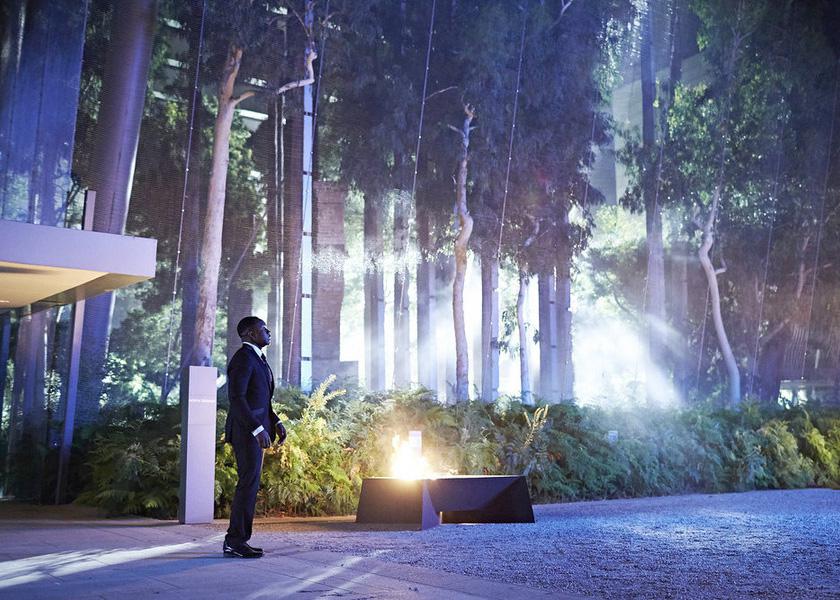
In the first part, “The Overlords”, the world in which we live, with all its ills, corruptions, degradation of the environment, poverty, hunger, wars, is surprised by the arrival of gigantic extraterrestrial spaceships that park over the largest cities. They use images of deceased people to communicate to humans that an era of peace and prosperity has arrived. Their intentions are peaceful, and thanks to them, all of humanity’s problems are solved.
Oddly, the newcomers do not show themselves to the humans. They choose a man, Ricky Stormgrem (Mike Vogel), to be their intermediary. Although he was an affable person, always willing to help his neighbors’ conflicts, Ricky is surprised by the choice, but dedicates himself to the mission with his usual dedication. Still, the alien Karellen (Charles Dance) never shows himself to Ricky and his image is still a mystery. Only after several years do they present themselves, and mankind, although happy with the benefits they have brought, is shocked by their demonic appearance.
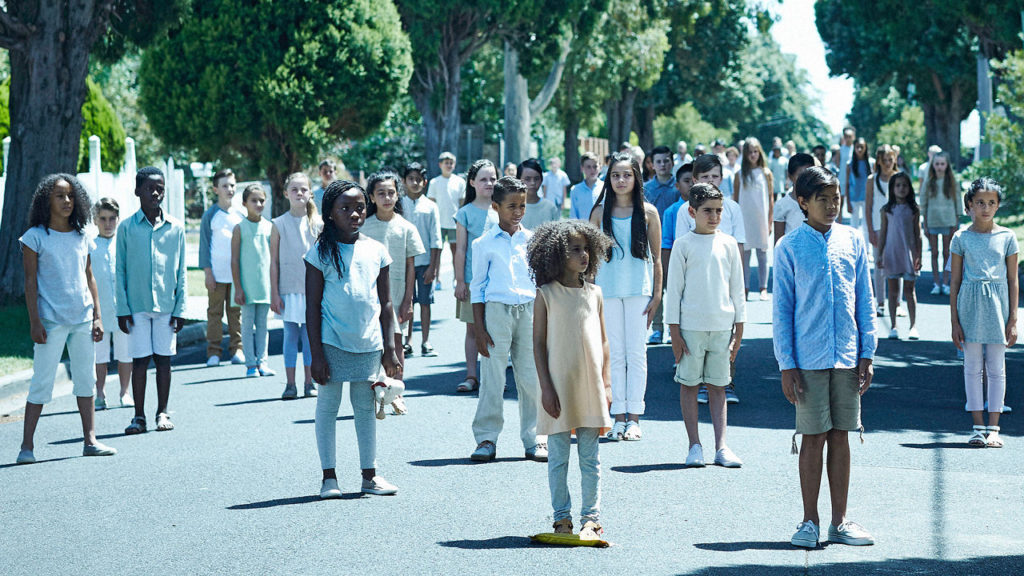
The second episode, “The Deceivers”, shows humanity in a totally different situation. With peace and prosperity, only two groups of people think the current situation is bad. The first is the scientists. With the arrival of the aliens, all needs were met, but scientific research simply had no more reason to exist, especially that involving space travel. The other unsatisfied group is formed by citizens who do not accept the benefits of extraterrestrials and create an isolated territory, called New Athens, where they live according to their will.
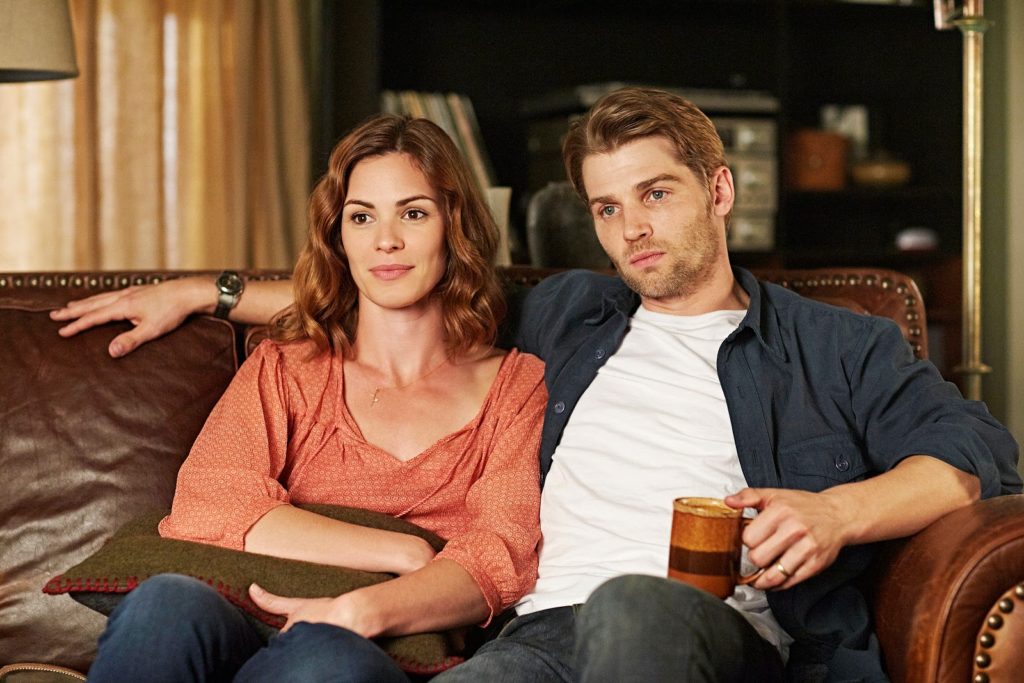
A very big crisis was also created with the most conservative religions and sects, shocked not only by the appearance of the aliens, but also by the denial of dogmas and beliefs hitherto established. But, what begins to worry people is the behavior of children. Peretta (Yael Stone), a child psychologist who used to be very active in her church, suspects that there is something demonic behind it all.
In the final episode, “The Children”, the real mission of the aliens will be revealed. While scientist Milo Rodricks (Osy Ikhile) seeks answers to the behavior of children at the very origin of the aliens, strange new phenomena make parents increasingly scared. It will be up to Milo not only to be the first to know the planet of origin of extraterrestrials but also to witness the destiny of Humanity.

Both the book and the miniseries bring a hard view on the role of religions in humanity, as well as a critical look at it. This story was written in a troubled period, between the end of World War II and the hardening of the Cold War, in the midst of McCarthysm and its persecution of would-be communists, the Korean War, etc. It is not surprising Clarke’s apocalyptic vision for a Humanity that seemed to have learned nothing.
The miniseries is very well done, with good performances, great special effects and maintains great fidelity to the original text. And for Arthur C. Clarke fans, good news. It was announced, still without a predicted date, that the great novel “Rendezvous with Rama” would be taken to the screens.

